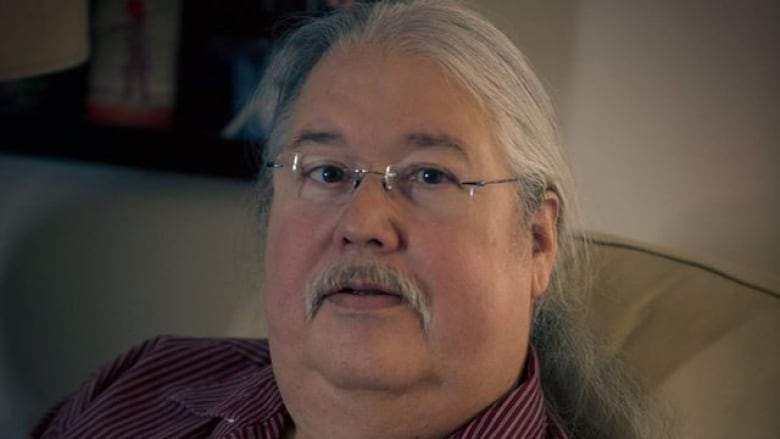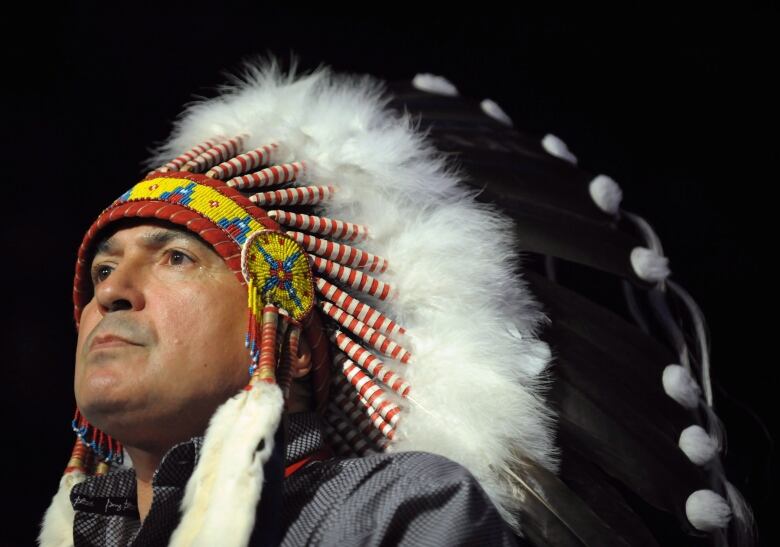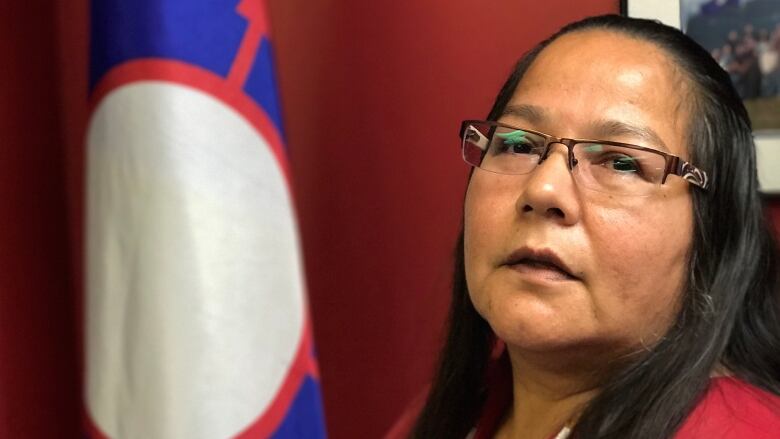Race for AFN national chief heats up as Trans Mountain opponent seeks candidacy
Russ Diabo believes Assembly of First Nations is too close to Trudeau government

A prominent Mohawk policy analyst who opposes the Trans Mountain pipeline and the Justin Trudeau government's direction on the Indigenous file plans to run for the leadership ofthe country's most influential First Nations organization.
Russ Diabofrom Kahnawake, a Mohawk community south of Montreal, said he decided to enter the race to lead the Assembly of First Nations (AFN) because of the "threat" posed to Indigenous rights by legislation recently proposed by the Trudeau government.
Diabo said he is also supporting First Nations opposition to Kinder Morgan's Trans Mountain pipeline. He said Trudeau's strong language supporting the pipeline "shows the hypocrisy of his stated reconciliation agenda."
Hesaid he is entering the race forAFN"reluctantly" but felt compelled to, given the stakes.
"I have grave concerns about this legislation that Trudeau wants to bring forward to recognize rights," saidDiabo.
"He is out to terminate rights in his policy framework and violate international rights."
Diabois the first potential candidate to enter the race against incumbentAFNNational Chief PerryBellegarde,who will be trying to secure a second term.
The vote forAFNnational chief is scheduled for July 25 in Vancouver. TheAFNrepresents 634 First Nations across the country.
Advisorand analyst
Diabo has about 40 years experience working in First Nations politics. He worked for the AFN at various points throughout the 1980s and 1990s as an advisor and analyst. He also helped write the federal Liberal Party's Red Book Indigenous policy after Jean Chrtien was elected leader in 1990.
Diabo said his political awakening came in the 1970s, participating in the Native American occupation of the Bureau of Indian Affairs building in Washington, D.C., and in the glare of tracer fire during the Wounded Knee standoff on the Pine Ridge reservation in South Dakota.
Bellegarde, who is from theLittle Black Bear First Nation in Treaty4 territory in Saskatchewan, is entering his re-election campaign touting a close and fruitful relationship with the Trudeau government which has added $16 billion in new spending on the Indigenous file over the last three federal budgets.

"These unprecedented investments are a result of strong advocacy by the AFN under National Chief Bellegarde's leadership," said an AFN bulletin issued this month.
A spokesperson for Bellegarde said the national chief would not be commenting on potential candidates.
The nominations open for AFN national chief candidates in late May.
Trudeau government's priorities
AFN national chiefs are normally elected to three-year terms. Bellegarde, a veteran chief, was elected in December 2014 during a special election after former AFN national chief Shawn Atleo resigned.
Bellegarde and the AFN benefited from a Trudeau government that made reshaping Canada's relationship with Indigenous Peoples a priority.
The prime minister appointed the country's first Indigenous Minister of Justice by naming former AFN regional chief Jody Wilson-Raybould to the post. The federal government then dissolved the department of Indigenous and Northern Affairs and replaced it with two new departments: Indigenous Services and Crown-Indigenous Relations.
In February, Trudeau announced his government would introduce legislation defining Indigenous rights.While Indigenous rights were enshrined in section 35 of the Constitution in 1982, they have never been defined.
The Supreme Court has slowly defined section 35 in successive rulings, but federal policy has lagged behind.
Diabo believes the Trudeau government's final aim is to turn First Nations into municipal-type governments with tax powers and private property ownership, ending communal land ownership and the tax-free status of reserves under the Indian Act.
"If you look at all their legislation they have been pushing, since Chrtien, they have been pushing . . . to move into the direction of assimilating Indians and Indian lands into the general Canadian structure where the provinces will dominate and reserves will disappear," said Diabo.
Needs support of chiefs
News of Diabo's candidacy spread quickly across social media over the weekend, with many tweets and posts expressing support. However, only chiefsor their designatescan vote for the national chief. Diabo needs at least 15 to back his candidacy, including eight outside of his home region of Quebec.

Wolf Lake First Nation Chief Harry St. Denis, whose Algonquin community sits in Quebec, saidhe is supporting Diabo's message and bid.
"I think he's got a good chance," said St. Denis. "He's going to make things interesting."
Neskonlith First Nation Chief Judy Wilson, whose community is part of the Secwepemc nation in B.C.'s interior, said she's also backing Diabo.
"With the issues facing us across Canada as Indigenous people, we do need someone at the helm of the AFN to guide and direct that work because it's a critical junction for Indigenous people," said Wilson.
After a flurry of social media buzz about this today, I am confirming that @RussDiabo is running for #AFN National Chief. I just got off the phone with him. #TeamRussDiabo #NationalChiefDiabo @JorgeBarrera @CBCIndigenous @IdleNoMore4 @Pam_Palmater @Hayden_King @LawladyINM
—@bearclannationJanice Makokis, a legal scholar and faculty instructor at the University of Alberta, said Diabo has widespread support among grassroots First Nations people. She hopes they can pressure their leadership into backing Diabo.
Makokis, who is from Saddle Lake Cree Nation in Treaty 6 territory in Alberta, was the first to tweet Friday eveningthat Diabo was running.
"Desperate times call for desperate measures," she said.
"I think that Russ is stepping up because we are under direct threat of being legally terminated."












_(720p).jpg)


 OFFICIAL HD MUSIC VIDEO.jpg)
.jpg)



























































































